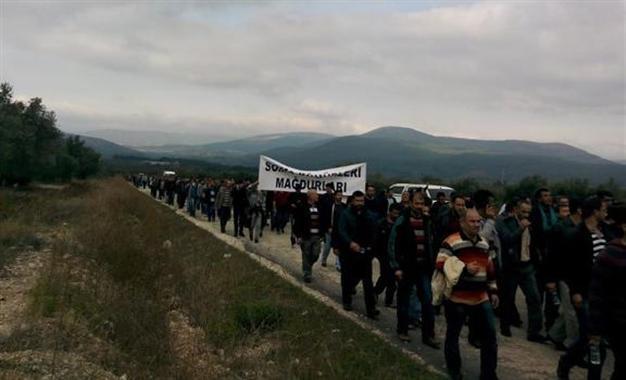Miners from disaster-struck Soma start march to Ankara to denounce unpaid wages
MANİSA

Following the example of the 1990 historic march to Ankara by miners from Turkey’s coal capital, Zonguldak, around 250 workers in Soma hit the road on foot Ankara.
Dozens of workers from the mining town of Soma began a march to the Turkish capital of Ankara on Oct. 28 to protest the fact that they have not been paid their wages.
Workers employed at the disaster-struck Eynez Mine, where a mining accident claimed the lives of 301 workers in May, said the authorities had not keep their promises following the tragedy.
The mining accident, the worst in the country’s history, prompted officials to close other sites operated by the same owner as an investigation was carried out. However, Energy Minister Taner Yıldız and other officials have raised the possibility that those mines could begin activity before the end of the year.
Workers from the Eynez and Atabacı mines, the latter also operated by the Soma Coal Mining Company, have been protesting for two days to claim their unpaid wages and demand that the government reopen the sites.
Following the example of the 1990 historic march to Ankara by miners from Turkey’s coal capital, Zonguldak, around 250 workers have decided to step up their action by hitting the road on foot to meet with officials and demand a solution.
Union representatives said the miners working for the Soma Coal Mining Company had not received their wages since the accident, despite guarantees from the company and the government that they would be paid while the mine is closed.
“We want our job; we want our bread. If this company is not able to work from now on, then we ask the state to do it,” said Cafer Bülbül from the Maden-İş union.
The government had vowed deep changes regarding work safety measures in the sector following public outcry over the workers’ conditions.
